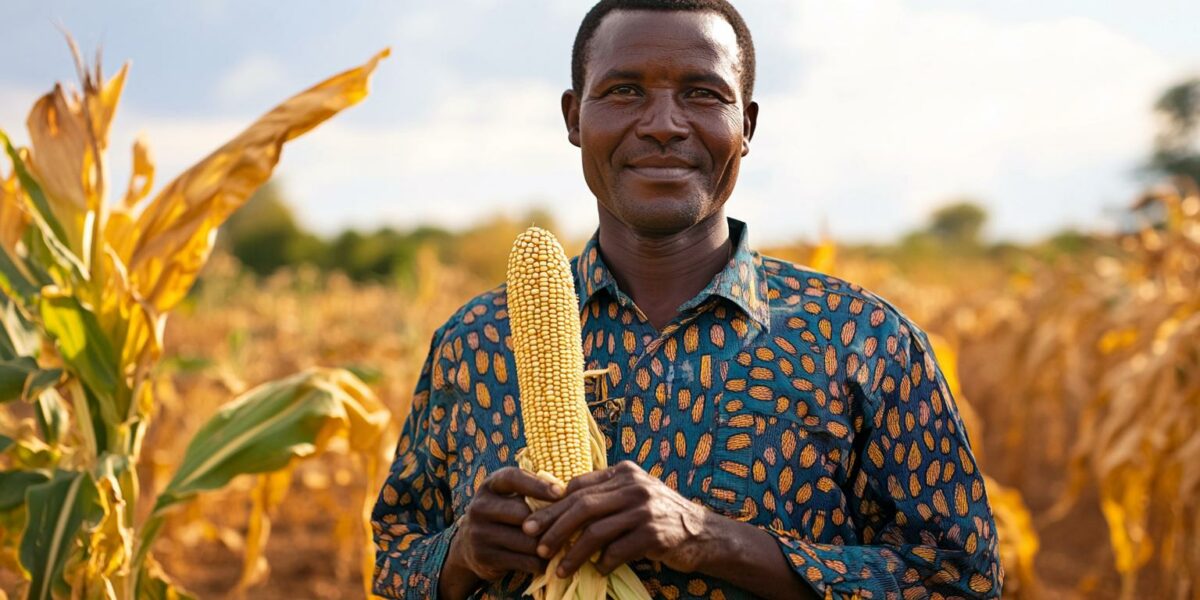Climate-Smart Techniques Revolutionizing Small-Scale Farming
Recent studies in South Africa’s North West province reveal that climate-smart farming techniques significantly enhance maize yields and provide a consistent food supply for small-scale farmers. These innovative methods ensure diversified crops, improving both food security and economic stability for these communities.
Small-scale farmers, often reliant on their harvests for sustenance and income, face heightened vulnerability due to climate change. Unpredictable weather patterns and extreme conditions have made traditional farming practices less effective, pushing the need for climate-smart solutions.
Effective climate-smart techniques include:
- Drought-tolerant maize seeds: These varieties thrive even in drought conditions.
- Mulching: Applying a layer of organic material to retain soil moisture.
- Cover cropping: Planting grasses or legumes to enrich and protect the soil.
The semi-arid climate of the North West province, characterized by hot summers and mild winters, has led to frequent droughts and erratic rainfall, emphasizing the urgency for adaptation. Adopting these techniques mitigates the adverse impacts of climate change.
Farmers’ Resilience in the Face of Climate Change
Across South Africa, small-scale farming families lack advanced irrigation systems, making them particularly vulnerable to climate shifts. The delayed rains disrupt planting schedules, reducing crop yields and causing food insecurity in their households.
Our research, led by agricultural economists, found that implementing climate-smart practices enhances productivity and resilience among small-scale farmers. These methods not only mitigate climate impacts but also ensure a more diverse and secure food supply.
Maize, a staple food in South Africa, is crucial for the diet of millions. On average, 5.2 million tonnes are consumed annually, underscoring the importance of optimizing maize production through climate-smart agriculture.
Our study involved interviewing over 300 maize farmers from 30 rural communities in the North West province. They have been adapting their farming practices since 2010, drawing on Indigenous knowledge to navigate climate challenges.
Impressive Outcomes of Climate-Smart Agriculture
Our findings show that 86% of the surveyed farmers adopted climate-smart agriculture. One farmer remarked on the necessity of changing farming methods due to unpredictable weather, highlighting the need to adapt to new realities.
The ingenuity and resilience of these farmers are evident as they continue farming despite climate adversities. Those using climate-smart techniques harvested 6.2 tonnes of maize per hectare annually, earning about R15,000 (US$824) per hectare and selling 4.1 tonnes.
Conversely, farmers adhering to traditional methods harvested 3.9 tonnes per hectare, selling 2.7 tonnes and earning R11,500 (US$632) per hectare. The 30% increase in earnings for climate-smart farmers is transformative, offering economic stability and better livelihoods.
Enhanced soil health, environmental sustainability, and improved food security are some of the benefits of climate-smart agriculture. These practices lead to greater crop diversity, reducing reliance on single crops and increasing resilience to climate shocks.
Recommendations for Government and Stakeholders
Support from the government is crucial through extension services providing advice and training, such as using climate forecast services. Financial incentives are needed to encourage small-scale farmers to adopt climate-smart agriculture.
Strengthening agricultural co-operative societies ensures all farmers have access to necessary equipment. Policies should promote climate-smart agriculture, with community engagement and collaboration between academics and farmers to explore new farming methods.
By embracing these changes, South Africa can establish more resilient and sustainable agricultural systems, securing the livelihoods of maize farmers amid climate change.



luke
This is awesome news! Keep up the good work, South Africa! 🚜
oscar
Mulching sounds like a lot of work! Do the farmers get any help with this?
Anthony
This report is super insightful, but what about the initial investment needed for these techniques? Is there financial support available?
aliceserenity
I’m curious, how long does it take for farmers to see results after adopting these climate-smart practices?
Isaiah
Great article! Thank you for highlighting the resilience of small-scale farmers in South Africa. 🙏
Ellie
Wow, 30% increase in yield is no joke! How do they manage the costs of implementing these techniques?
VictoriaIllumination
This is incredible! Can these climate-smart methods be applied to other crops as well? 🌱